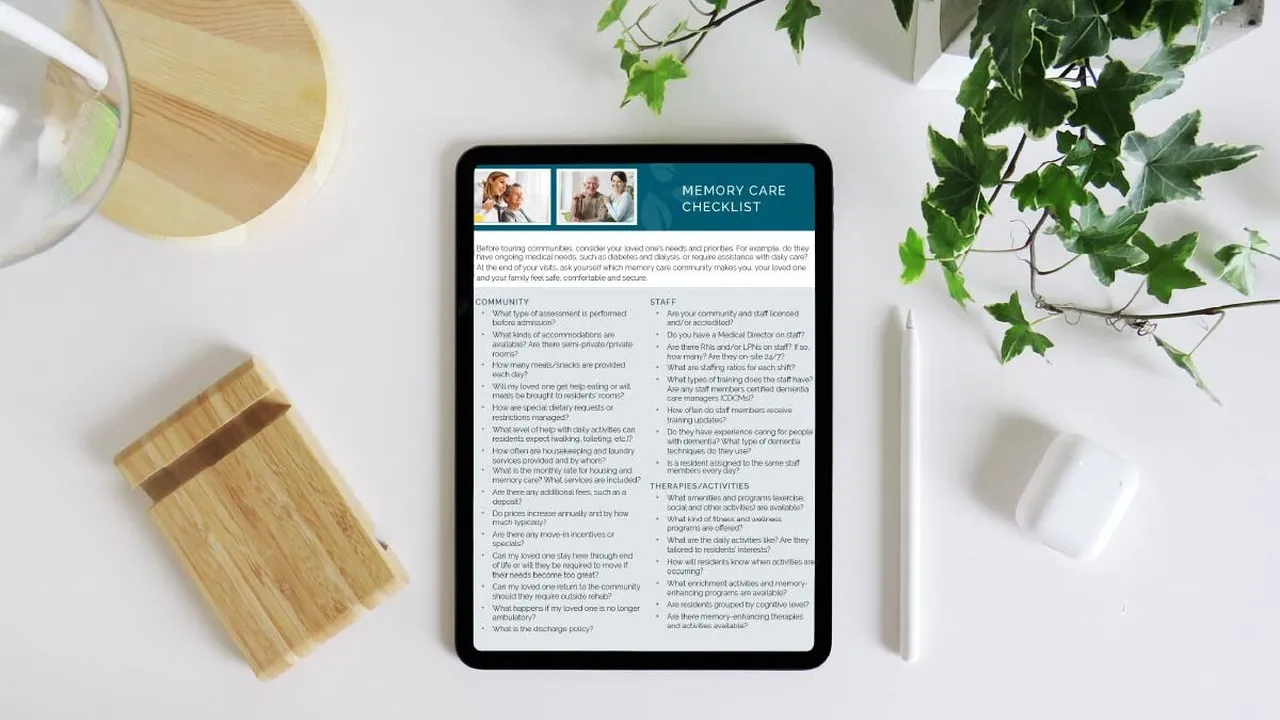5 Questions to Ask Home Care Providers
Prepare for your home care consultations with these essential questions to ensure you choose the right caregiver.

Prepare for your home care consultations with these essential questions to ensure you choose the right caregiver. Finding the right home care provider for yourself or a loved one can feel like a monumental task. It's not just about finding someone to help with daily tasks; it's about inviting a trusted individual into your home, someone who will provide compassionate care and support. This decision requires careful consideration, thorough research, and, most importantly, asking the right questions. To help you navigate this crucial process, we've compiled five essential questions you absolutely must ask potential home care providers. These questions will empower you to make an informed choice, ensuring peace of mind and the best possible care.
5 Questions to Ask Home Care Providers
Understanding Home Care Services What Exactly Do They Offer
When you're looking into home care, the first thing you need to get a handle on is the scope of services offered. Not all home care agencies are created equal, and their service menus can vary significantly. You might be looking for basic companionship, or perhaps more intensive personal care, or even skilled nursing services. It's vital to clarify what a provider can and cannot do before you get too far into the process.
What Specific Services Do You Provide
This might seem obvious, but it's the foundation of your inquiry. Ask for a detailed list of services. Do they offer assistance with activities of daily living (ADLs) like bathing, dressing, grooming, and toileting? What about instrumental activities of daily living (IADLs) such as meal preparation, light housekeeping, medication reminders, and transportation? Some agencies specialize in certain areas, like dementia care or post-operative recovery, while others offer a broader range. Make sure their offerings align with your specific needs.
Are Your Services Customizable to Individual Needs
Every individual is unique, and their care plan should reflect that. A good home care provider won't offer a one-size-fits-all solution. Instead, they should be able to tailor their services to the specific requirements and preferences of the care recipient. Ask how they assess needs and how flexible they are in adjusting the care plan as circumstances change. For example, if your loved one initially needs help with meals and light cleaning, but later requires assistance with mobility, can the agency adapt?
Do You Offer Specialized Care for Specific Conditions
If the care recipient has a specific medical condition, such as Alzheimer's, Parkinson's, diabetes, or is recovering from a stroke, inquire about specialized care. Do their caregivers receive specific training for these conditions? Do they have experience managing complex medical needs, such as wound care, catheter care, or injections? For instance, if you need dementia care, look for agencies that employ caregivers trained in memory care techniques, who understand how to manage challenging behaviors and create a safe, stimulating environment.
Caregiver Qualifications and Training Ensuring Professional and Compassionate Support
The quality of care is directly tied to the quality of the caregivers. These individuals will be spending significant time with your loved one, so their qualifications, training, and personal attributes are paramount. Don't hesitate to dig deep into their hiring process and ongoing support for their staff.
What Are Your Hiring Standards and Background Check Procedures
Safety and trustworthiness are non-negotiable. Ask about their hiring process. Do they conduct thorough background checks, including criminal history, driving records, and reference checks? What are their minimum qualifications for caregivers in terms of experience and education? Do they verify certifications or licenses? A reputable agency will be transparent about their screening process and prioritize the safety of their clients.
What Training and Continuing Education Do Your Caregivers Receive
Caregiving is a dynamic field, and best practices evolve. Inquire about the training programs for their caregivers. Do they receive initial training upon hiring? Is there ongoing education, especially for specialized care areas like dementia care, fall prevention, or first aid? For example, a caregiver trained in CPR and first aid provides an extra layer of security. Continuous learning ensures that caregivers are up-to-date on the latest care techniques and can provide the highest quality of service.
How Do You Match Caregivers with Clients
A good match between caregiver and client can make all the difference in the care experience. Ask about their matching process. Do they consider personality, interests, language preferences, and specific care needs? A personalized matching process can foster a stronger bond and a more comfortable care environment. For instance, if your loved one enjoys gardening, an agency might try to match them with a caregiver who shares that interest.
Scheduling and Availability Ensuring Consistent and Reliable Care
Consistency and reliability are key in home care. You need to know that your loved one will receive care when they need it, without unexpected gaps or frequent changes in caregivers. This section focuses on the practicalities of scheduling and ensuring continuous support.
What Is Your Policy on Scheduling and Caregiver Consistency
Frequent changes in caregivers can be disruptive and distressing for care recipients, especially those with cognitive impairments. Ask about their policy on caregiver consistency. Do they strive to assign a small team of caregivers to a client, or will there be a different person every visit? How do they handle scheduling conflicts, caregiver illness, or vacations? A clear policy on consistency and backup plans is crucial.
What Are Your Minimum and Maximum Service Hours
Some agencies have minimum hour requirements per visit or per week. Clarify these upfront to ensure they align with your needs. Do they offer 24/7 care if required? What about overnight care or live-in options? Understanding their flexibility in terms of hours will help you determine if they can meet both your current and potential future needs.
How Do You Handle Emergencies and After-Hours Support
Emergencies can happen at any time. Ask about their emergency protocols. Do they have an on-call supervisor or nurse available after hours? How do they communicate with family members in case of an emergency? A robust emergency response system provides peace of mind, knowing that support is available when it's most needed.
Cost and Payment Options Understanding the Financial Aspect of Home Care
Home care can be a significant financial commitment, so it's essential to have a clear understanding of the costs involved and the available payment options. Don't be afraid to ask detailed questions about pricing, billing, and potential financial assistance.
What Is Your Fee Structure and What Is Included
Get a clear breakdown of their pricing. Is it an hourly rate, or are there package deals? Are there additional fees for certain services, such as transportation, specialized care, or weekend/holiday rates? Ask for a comprehensive list of what is included in their standard rates and what might incur extra charges. Transparency in pricing is a good indicator of a trustworthy agency.
Do You Accept Insurance or Government Programs
Inquire about their acceptance of various payment methods. Do they work with long-term care insurance? Are they approved providers for Medicaid, Medicare Advantage plans, or Veterans' benefits? Understanding their billing procedures for these programs is crucial. For example, some agencies might bill your long-term care insurance directly, while others require you to pay upfront and seek reimbursement.
What Are Your Billing and Payment Policies
Clarify their billing cycle (weekly, bi-weekly, monthly) and accepted payment methods. Do they require a deposit? What is their cancellation policy? A clear understanding of their financial policies will prevent any surprises down the road. Also, ask if they can provide a detailed invoice that can be used for tax purposes or insurance claims.
Agency Oversight and Communication Ensuring Quality and Accountability
Even with the best caregivers, effective agency oversight and clear communication channels are vital for ensuring consistent quality of care and addressing any concerns that may arise. This section focuses on how the agency manages its services and interacts with clients and their families.
How Do You Monitor and Supervise Your Caregivers
A good agency doesn't just hire caregivers and send them out; they actively monitor their performance. Ask about their supervision process. Do they conduct regular check-ins, home visits, or performance reviews? How do they ensure caregivers are adhering to the care plan and providing high-quality service? Some agencies use technology, like electronic visit verification systems, to track caregiver arrival and departure times and tasks completed.
What Is Your Communication Protocol with Families
Open and consistent communication is essential for family members who are entrusting their loved one's care to an agency. Ask how they communicate updates, changes in condition, or any concerns. Do they provide regular reports? Is there a dedicated point of contact for families? For instance, some agencies offer online portals where families can view care schedules, daily notes, and communicate directly with the care team.
How Do You Handle Complaints or Concerns
Even with the best intentions, issues can arise. It's important to know how the agency addresses complaints or concerns. Do they have a formal grievance procedure? Who should you contact if you have an issue, and what is the typical resolution process? A transparent and responsive complaint resolution system demonstrates the agency's commitment to client satisfaction and continuous improvement.
Recommended Home Care Providers and Their Offerings
To give you a clearer picture, let's look at some types of home care providers and what they typically offer. Keep in mind that specific services and pricing can vary by location and individual franchise.
Homewatch CareGivers Comprehensive and Personalized Care
Homewatch CareGivers is a well-regarded national franchise known for its comprehensive approach to home care. They emphasize personalized care plans and a strong focus on caregiver training. They offer a wide range of services, including personal care, companionship, dementia care, post-operative care, and even specialized care for chronic conditions. Their caregivers undergo extensive training, including proprietary programs for dementia and chronic disease management. They pride themselves on matching caregivers based on personality and specific client needs. Pricing typically ranges from $25-$35 per hour, depending on the location and level of care required. They often work with long-term care insurance and some VA benefits. Their communication protocols usually involve regular updates to families and a dedicated care coordinator.
Right at Home In-Home Care and Assistance
Right at Home is another prominent name in the home care industry, offering a broad spectrum of services designed to help seniors and adults with disabilities maintain independence in their homes. Their services include personal care, companionship, light housekeeping, meal preparation, medication reminders, and transportation. They also offer specialized care for conditions like Alzheimer's, Parkinson's, and stroke recovery. Right at Home places a strong emphasis on caregiver screening and ongoing training, ensuring their staff is well-equipped to handle diverse client needs. They typically offer flexible scheduling, from a few hours a week to 24/7 care. Hourly rates generally fall between $22-$32, varying by region and service intensity. They often assist with navigating long-term care insurance claims and may accept some government programs.
Comfort Keepers Uplifting In-Home Care
Comfort Keepers focuses on what they call 'Interactive Caregiving,' which aims to engage clients physically, mentally, and emotionally. Beyond standard personal care and companionship, they emphasize activities that promote well-being, such as walks, hobbies, and social interaction. They offer services like personal care, companionship, light housekeeping, meal preparation, medication reminders, and transportation. They also provide specialized care for dementia, end-of-life care, and post-hospital care. Their caregivers receive continuous training, with a focus on their Interactive Caregiving philosophy. Pricing for Comfort Keepers typically ranges from $24-$34 per hour, depending on the specific services and geographic location. They are generally experienced in working with various payment sources, including private pay, long-term care insurance, and some government programs. They prioritize consistent caregiver assignments and clear communication with families.
Home Instead Senior Care Trusted In-Home Care
Home Instead is one of the largest and most recognized home care providers globally, with a strong reputation for compassionate and reliable care. They offer a wide array of services, including companionship, personal care, meal preparation, light housekeeping, medication reminders, transportation, and specialized Alzheimer's and dementia care. They are known for their rigorous caregiver screening process, which includes extensive background checks and comprehensive training programs. Home Instead often provides a dedicated care team to ensure consistency and build strong relationships between caregivers and clients. Their hourly rates typically range from $23-$33, depending on the region and the level of care required. They are well-versed in assisting clients with long-term care insurance claims and may accept other forms of payment. They maintain open lines of communication with families, often through care logs and regular check-ins.
Visiting Angels Senior Home Care
Visiting Angels is a non-medical home care agency that focuses on providing personalized care to help seniors age in place. Their services include personal care, companionship, light housekeeping, meal preparation, medication reminders, and errands. They also offer specialized programs like 'Ready-Set-Go Home' for post-hospital care and 'Dementia Care' for individuals with cognitive decline. Visiting Angels emphasizes matching clients with caregivers who share similar interests and personalities, aiming to create a comfortable and trusting relationship. Their caregivers undergo thorough screening and continuous training. Hourly rates for Visiting Angels generally range from $21-$30, depending on the location and specific services. They typically work with private pay, long-term care insurance, and sometimes VA benefits. They prioritize clear communication and responsiveness to client needs and concerns.
Comparing Home Care Providers Key Differentiators
When comparing these providers, consider a few key differentiators:
- Specialization: While all offer general care, some excel in specific areas. For instance, Homewatch CareGivers and Home Instead have strong programs for dementia care.
- Care Philosophy: Comfort Keepers' 'Interactive Caregiving' approach might appeal to those looking for more engaging and stimulating care.
- Caregiver Matching: Most agencies strive for good matches, but inquire about the specifics of their process. Visiting Angels, for example, puts a strong emphasis on personality and interest alignment.
- Technology Integration: Some agencies might offer more advanced technology for family communication or care monitoring.
- Geographic Reach: While these are national brands, local office quality can vary. Always check local reviews and accreditations.
Ultimately, the best home care provider is one that aligns perfectly with your loved one's needs, preferences, and your family's budget. By asking these five essential questions and doing your due diligence, you'll be well-equipped to make a confident and compassionate choice.
:max_bytes(150000):strip_icc()/277019-baked-pork-chops-with-cream-of-mushroom-soup-DDMFS-beauty-4x3-BG-7505-5762b731cf30447d9cbbbbbf387beafa.jpg)






